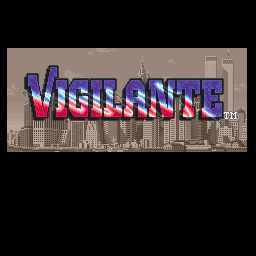 The O Heraldo carried a rather
shocking report on the twenty-eighth of last month. Titled ‘Farmers, NGOs raise
huts in Margao’, the report was about the unchecked vigilantism by a group of
citizens, who in the face of the alleged lethargy of the State authorities
about a collection of tents, decided to take it on themselves to demolish these
make-shift dwellings. Subsequent to this demolition, these citizens then
informed the authorities to make sure that the materials of these tents was
carried away, and the tents not allowed to be set up again.
The O Heraldo carried a rather
shocking report on the twenty-eighth of last month. Titled ‘Farmers, NGOs raise
huts in Margao’, the report was about the unchecked vigilantism by a group of
citizens, who in the face of the alleged lethargy of the State authorities
about a collection of tents, decided to take it on themselves to demolish these
make-shift dwellings. Subsequent to this demolition, these citizens then
informed the authorities to make sure that the materials of these tents was
carried away, and the tents not allowed to be set up again.
This actions by these so-called
NGOs is perhaps more appalling because of their timing, and the nature of the groups
that they were attacking. The news report indicated that the people living in
these small tents were waste recyclers, and it was their fouling of the local
area both with plastic waste that they could not recycle, as well as their
excreta, that caused the attack to be carried out. We should be clear then,
that this attack was one by middle-class persons against persons who would very
well qualify as poor. That this action should have been carried out in the
course of the monsoons, is perhaps the most inhumane part of the exercise.
While there is no doubt that the tent-dwellers may have inconvenienced these
middle-class groups, we must not forget that these persons would have no doubt
also had older members of their families, as well as children who also lived in
these tents. Thus, what this vigilante demolition effectively did, was to
ensure not only that these vulnerable segments of already marginalized groups
were forced to be without a roof over their head in the course of the pouring
monsoon, but also ensure that these segments would have missed meals, for
reasons of losing not just hearth, but possibly kitchen stocks as well. The
heartlessness of this action should leave us speechless for shame!
This column however, does not
wish to dwell solely on this issue. Rather, it would like to relate the outcome
when this report, and the outrage at this action, was shared with others on an
internet forum. The first response to the sharing was a question “So do you favour the mushrooming of these structures?” This
was a response designed to flummox. Surely this person realized that the issue
being raised was not the validity of “these structures” but the problems with
the process being used to resolve the matter?
It is so
much easier to condemn a person for failing to have a conscience, but what we
often fail to realize is that having a conscience is often about being able to
distinguish one situation from another. It calls for a complexity of vision, so
that one can distinguish a cause and an effect, between an end and a process.
Such a complexity of vision, it has to be recognized, doesn’t just spring in
people automatically; it is cultivated, through observation, discussion. If one
goes onto the internet, a space where so many Goans attempt to articulate and
discuss their issues, one notices largely, the absence of any protocols of
discussion, and the inability to entertain nuance. The situation is largely a
case of with me or against me, and following that, the hurling of abuse.
This
situation definitely does not augur well for us. Goan society is clearly in a
state of flux, facing a great many challenges, and if the vast majority of our
people are unable to see the nuance in debates that are being proposed, then we
are done for. We are done for, because failing the development of this capacity
to see nuance and be able to engage in discussion, we will largely continue to
favour actions such as resulted in the demolition of the tents in Margão. As was suggested above, there is not much difference
between the actions of groups like the Sri Ram Sene and the actions of these
‘NGOs’. They are both vigilantes committed to their idea of the truth and
unable to tolerate the ‘Other’, both of them with scant respect for process.
Process, at the end of the day, whether the legal concept of due process, that
prevents us from taking the law into our hands; or the simple concept that
privileges discussion, is critical to addressing the challenges we face.
The
solution for Goa then, lies not merely in finding the solutions to the many
problems we face, but in finding a manner in which we negotiate the process in
which we arrive at the possibility of solutions.
(A version of this post was first published in the Gomantak Times on 7 July 2012)


No comments:
Post a Comment